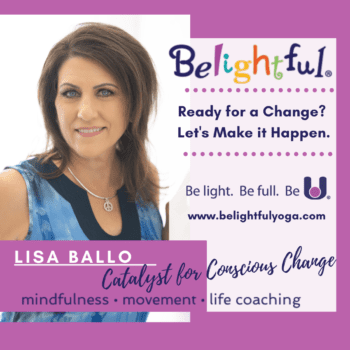Conventional wisdom dictates that you have to love yourself to love others. But the truth is, it’s just not that simple. Nothing in life is.
Sure. When you’re able to successfully embrace what makes you special, it does make it easier to see that in others. And if you’re critical and unaccepting of yourself, you may have a hard time believing others could love you.
But the idea that you can ONLY feel for others if you’re able to practice love for yourself is fallacious and a gross oversimplification. And it can lead to toxic shame.
It Is Not Necessary to Love Yourself to Love Others
Yes, working from a place of self-acceptance and positivity enables you to be open in relationships while maintaining autonomy when by yourself. Thus, your connections with others are genuine and not from a place of desperation.
And if you feel forever ‘less than,’ you’ll go to great lengths to hide your true self while putting a distance between yourself and others. Or, instead, you may go out of your way to behave in a manner that betrays your true self in order to parley favor of others.
But even if the latter applies to you, this does not make you incapable of giving and receiving love. There are plenty of occasions where we chance upon someone who can see us for who we truly are. This can help you to overcome some of those insecurities.

The reality is that each of us struggles with ourselves in one way or another. And it’s the rare person who loves themselves 24/7. That’s because life is forever calling on us to change and to grow. And hopefully, we heed the call.
As you work on self-love within your relationships with others, you’ll experience a deeper and more open connection.
But to take the stance that an abiding love for oneself is a prerequisite to feeling love for others is self-defeating at best, and downright isolating and damaging at worst.
Where Shame Enters the Picture
Obviously, if you’re living a reckless life without consideration of others, some examination may well be recommended. But the idea that you have to fully love yourself before loving someone else is a recipe for disaster. It reinforces the false notion that to have love for oneself is simple and that if you can’t achieve it, you should be ashamed.
To reiterate, there’s nothing simple about it. It takes work. A lifetime of work. And then some.
Plus, relationships are also work. Especially the ones we have with ourselves. That relationship will change as you change, as your environment changes, and as your other relationships change. Everything is always in flux. And self-love doesn’t have a destination point or finish line.
When you get right down to it, it’s much easier to love someone else than yourself. You’ll make concessions for others that you won’t for yourself. You might even say things to yourself that you’d never utter to those you love. But there should be no shame.
None of this means you’re incapable of having love for yourself. It means only that you’re human. Just like everybody else. And just as capable of sharing love with others.
Practicing Self-Love
It’s clear that if you’re able to practice some sort of love for yourself makes everything easier. But the notion that it’s not possible to love others without adoring yourself dampens the importance of self-love as its own separate entity. Instead, it treats relationships with others as the goal.
So on the journey of having more affection for yourself, set an intention to do it for yourself first and foremost. What are some of the best ways to practice this? Here are some of the ways it’s approached in mindfulness-based practices like yoga, meditation, and life coaching.
1. Take Care of You
This practice asks you to look at your regular habits, thoughts, and ideas and ask if they’re contributing to your well-being. For example, do you get enough sleep each night? Or be curious whether the food you eat is nurturing or damaging? Could you incorporate more exercise into your life to feel better?
Again, none of these questions is meant to be shaming. The goal is self-care to feel better about and to have an appreciation for yourself. This is a stepping stone toward being more loving toward yourself.
2. Leave Your Comfort Zone
Thinking about changing your life via some of the questions in #1 above may have left you feeling a little uncomfortable. That’s good! Because it’s pretty tough to grow if you’re perpetually in your comfort zone.
The idea is not to plunge into the darkness and traumatize yourself. Allow these changes to be small and gradual as you grow the ability to believe in yourself and your ability to make the shift.
3. Practice Affirmations, Breathing, and Meditation
Maybe this sounds too hippy-trippy to you. But once again, there’s something to be said for getting out of your comfort zone.
Breathing exercises such as those found in yoga can bring calmness and clarity to your mind. Adding in a positive affirmation like those that make up the foundation of loving-kindness meditation adds another layer to grow in a positive direction.
And you can do all of these in the company of others during a class or session, or fly solo if that’s more your thing. That’s the beauty of it.
4. Be Kind to Yourself
Remember that you are a compilation of all of your life experiences. You have experienced losses, sadness, and other negative emotions that impacted you. So try to be kind to yourself. How would you nurture a friend or loved one who went through some of the things you have? And what qualities of strength and resilience would you praise in them? Can you see those in yourself?

5. Have Patience
As we mentioned above, all of this takes work and effort. And there will be days when you feel like you’ve come so far only to slide backward and feel that lack of love again. THAT’S OKAY!
We all have demons. Some eventually disappear, others don’t disappear at all and we have to find new ways to live with them. So be patient with yourself. You’ve come to this new practice with a lifetime of stories you’ve told yourself. It takes a while (sometimes a LONG while) to smooth the dents they’ve created.
Begin The Journey Toward Self-Love
While you don’t need to love yourself to love others, there are certainly benefits to embracing yourself.
So if you’d like to experience firsthand the benefits of this as learned through yoga, meditation, or life coaching, contact us today to start your journey. We’ll bring our sessions to you either in person or virtually.
Then remember that it’s not about the destination, but rather what you learn along the way.



